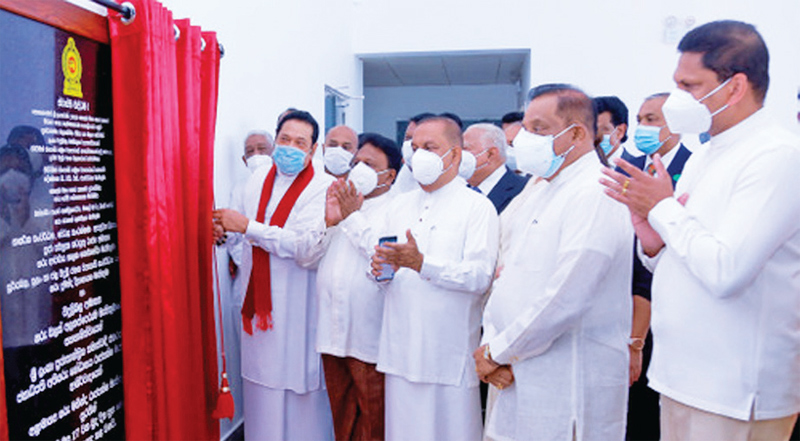Sri Lanka’s first Waste-to-Energy Plant was launched in Kerawalapitiya, by Prime Minister, Mahinda Rajapaksa, Minister of Power, Dullas Alahapperuma, , Mayor of Colombo, Rosy Senanayake and other invitees.
The growing problem of waste disposal was addressed by the Colombo Municipal Council who invited bids for the implementation of an environmentally acceptable and sustainable mechanism for the disposal of municipal solid waste. The Western Power Company (Pvt.) Ltd, (WPC) a subsidiary of Aitken Spence PLC, was selected through this competitive bidding process and was the only company to complete the project among few others. Aitken Spence has since invested around Rs. 15 billion for the project.
Furthermore, WPC entered into a Waste Supply Agreement (WSA) with the CMC and a Standardized Power Purchase Agreement (SPPA) with the Ceylon Electricity Board, for a tenure of 20 years in 2017.
WPC also entered into a contract with a leading Chinese engineering company to design, build, and transfer a modern waste incineration plant. Renowned engineering consultancy firm, Ramboll AG, headquartered in Denmark was appointed as the Owner’s Engineer.
 |
| The Waste-to-Energy Power Plant |
Prime Minister, Mahinda Rajapaksa said ‘’The solid waste management process in the city of Colombo has been going on for a long time, facing various challenges. The Kerawalapitiya Waste-to-Energy Project, which was launched as a result of continuous efforts to solve that problem, is unique. It is a milestone in the solid waste management process not only in the city of Colombo, but in entire Sri Lanka.’’
Chairman of Aitken Spence PLC, Harry Jayawardena commented, “As a diversified conglomerate we have always taken a progressive approach to investment. This venture is guided by the principles of sustainability, responsible corporate stewardship, and progress through innovation and development. It gives me great pleasure to see years of meticulous planning and hardwork finally come to fruition. This power-plant will give Sri Lankans access to clean, reliable energy, help with beautification of the city and hopefully set a trend for clean, renewable sources of energy.”
Minister of Power, Dullas Alahapperuma stated, “It is the Ministry of Power’s intention, to find a sustainable solution to the waste management problem which is a complex and long-running issue. By generating cost-effective, renewable energy from something that would otherwise cause stench and disgust, we have provided an elegant solution to an age-old problem.
Mayor of Colombo, Rosy Senanayake, in her message, stated “By implementing this waste-to-energy project, Colombo Municipal Council has been able to obtain a sustainable and environmentally friendly long-term solution for the solid waste collected in the city of Colombo”.
The waste-to-energy plant will incinerate this waste, supplied by the Colombo Municipal Council. 600 – 800 tons of waste will be processed every day and the power supplied to the national grid.
The waste-to-energy plant will provide 10MW of electricity to the National Grid and this falls within the Western Region Megalopolis Plan. The Non-conventional Renewable Energy produced by the project is compatible with the NCRE targets put in place by the Ministry of Power and Energy.
The Non-conventional Renewable Energy produced by the project is compatible with the NCRE targets put in place by the Ministry of Power and Energy. Additionally, the power plant has been completely aligned with global benchmarks for social, environmental governance, and sustainability during its construction and is set to exceed these standards during operation.


